
BUDOWLE & OBIEKTY Churches and chapels
Churches and chapels
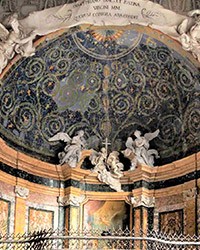
San Giovanni in Laterano Baptistery – a water-filled cradle of Christianity
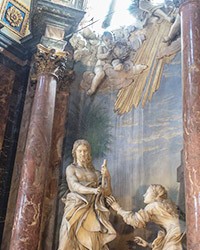
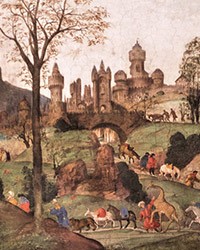
Carafa Chapel – a place of Renaissance in every inch
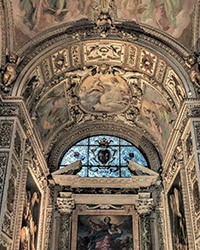
Cerasi Chapel – a clash of two artistic personalities
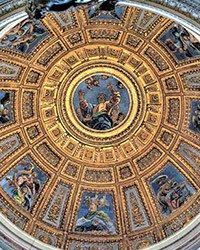
Chigi Chapel – a treasury of esthetic sensations and religious emotions
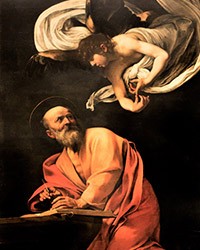
Contarelli Chapel – a place, where the surprised Matthew finds his path of life
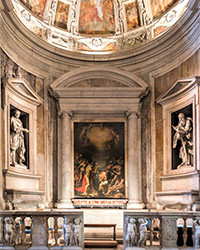
Del Monte Chapel – a stylistically balanced and artistically reserved place

Chapel del Monte di Pietà – a bombastic symbol of the struggle against usury
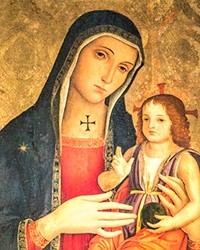
Cardinal Bessarion’s Chapel – a posthumous politically-religious message
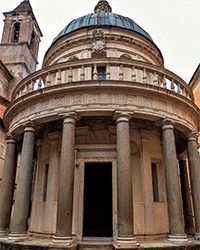
Chapel of Martyrdom of St. Peter (Tempietto) – an antique brought back to life
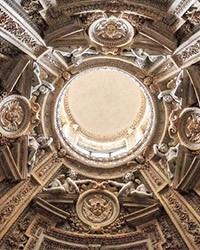
The Pieta Chapel (Cappella della Pietà) in the Church of San Pietro in Montorio – a breath of fresh air of Dutch art
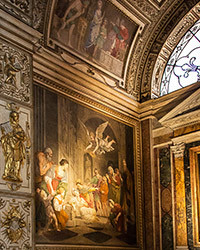
Polet Chapel – a monument to the counter-reformation virtues of a French wine merchant
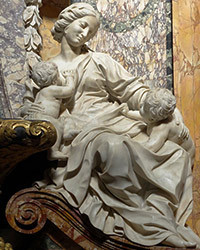
The Rospigliosi-Pallavicini Chapel – the posthumous chord of a great Roman dynasty
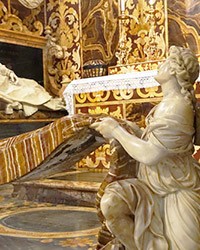
Spada Chapel – ancestors, meaning capital which cannot be underestimated
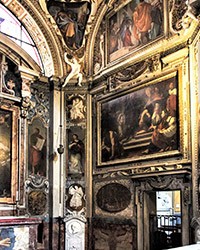
Chapel of Saint Hyacintha Marescotti – a place where the senses struggle against virtue
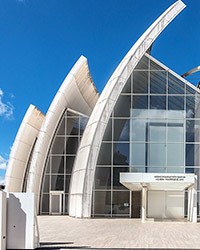
Church of Dio Padre Misericordioso – a jewel of contemporary architecture in a sea of bleak apartment buildings
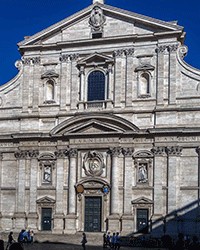
Church of Il Gesù – modesty transformed into lavishness, meaning the stunning salon of the Jesuits
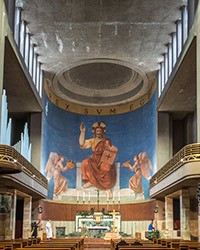
Church of Sacro Cuore di Cristo Re, meaning, the beginning of a new era of sacral architecture
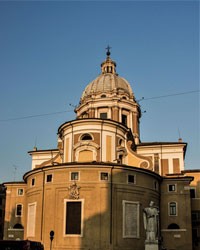
Church of San Carlo al Corso – grandeur and splendor for an advocate of poverty
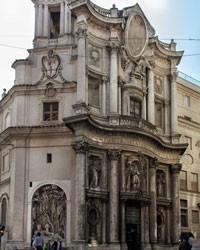
Church of San Carlo alle Quattro Fontane – built out of hope and disappointment
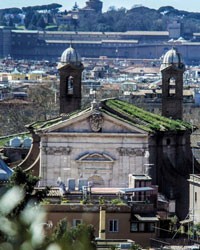
Church of San Giacomo in Augusta – a pilgrim church for the body and the spirit
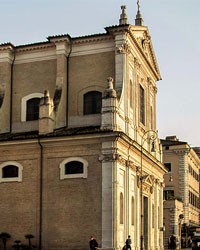
Church of San Girolamo dei Croati – here, where Jerome debates and preaches
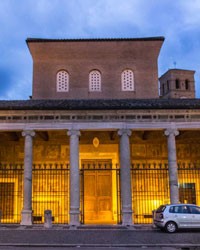
Church of San Lorenzo fuori le mura – a pilgrim basilica of admirable beauty
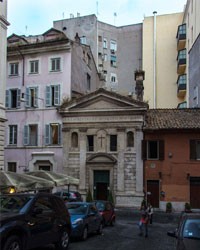
Church of San Lorenzo in Fonte – a place of imprisonment and a miraculous conversion
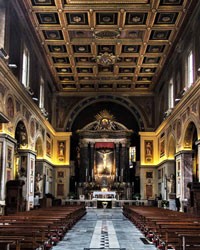
Church of San Lorenzo in Lucina – where Christ, joyfully floats up into the heavens
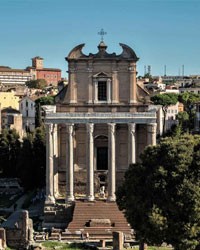
Church of San Lorenzo in Miranda – a saint deacon in a pagan temple
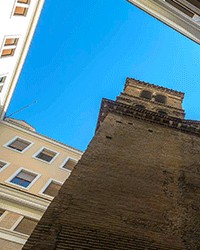
Church of San Lorenzo in Piscibus – deserted and modernized, yet moving
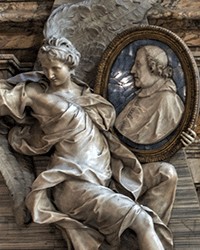
Church of San Marcello al Corso – a church filled with beautiful tombstones
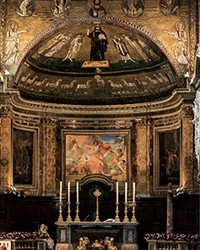
Church of San Marco – where Venetians left their artistic mark
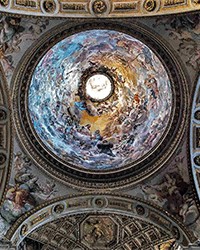
Church of San Nicola da Tolentino – place, where Augustinians gave out their breads
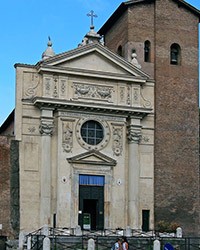
Church of San Nicola in Carcere – a church erected on a pagan cult site
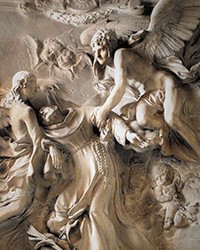
Church of San Pietro in Montorio – a place of artistic and religious contemplation
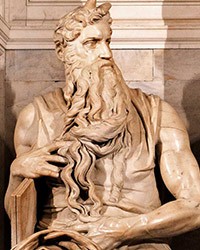
Church of San Pietro in Vincoli – a pilgrimage to miraculous chains and a magnificent Moses
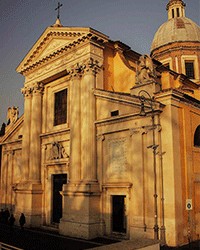
Church of San Rocco – a church of the poor, the sick and the discarded
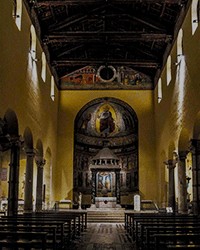
Church of San Saba – a place filled with the spirit of the Middle Ages
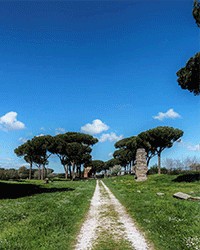
Church of San Stefano Protomartire – following in the footsteps of the cult of St. Stephen in Rome
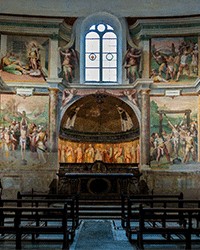
Church San Stefano Rotondo – a House of God filled with light and suffering
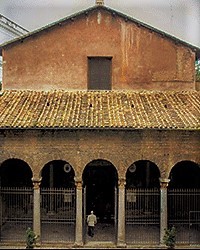
Church of San Vitale – early Christianity and Jesuit propaganda at the busy via Nazionale
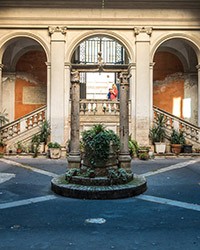
Church of Sant’Agata dei Goti – a place of heretical services
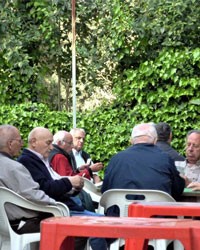
Church of Sant’Agnese fuori le mura – a spiritual idyll on the outskirts of the city
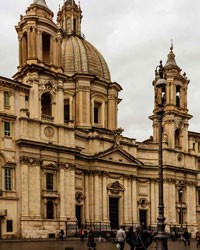
Church of Sant’Agnese in Agone – a theatre of the senses and a mausoleum of memory
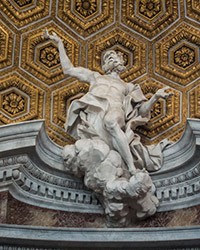
Church of Sant’Andrea al Quirinale – the greatest construction of the ingenious Bernini
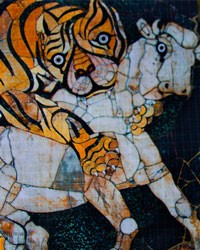
Church of Sant’Andrea Catabarbara (nonexistent) – a valuable gift from a barbarian chieftain
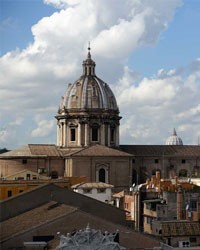
Church of Sant’Andrea della Valle – a foundation full of splendor and elegance
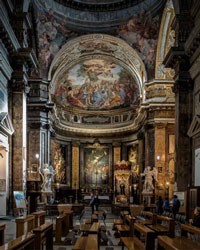
Church of Sant’Andrea delle Fratte – where posthumously Bernini struggles with Borromini
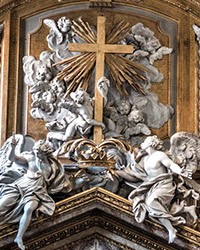
Church of Sant’ Apollinare – a church „with a past”
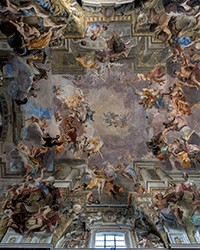
Church of Sant’Ignazio di Loyola – an area of false impressions and optical illusions
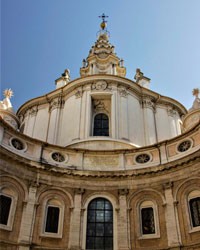
Church of Sant’Ivo alla Sapienza – refined evidence of architectural genius
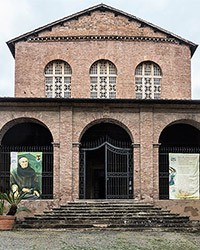
Church of Santa Balbina – a breath of antiquity far away from tourist routes
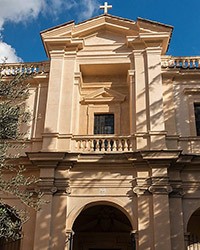
Church of Santa Bibiana – an oasis of art in the urban jungle
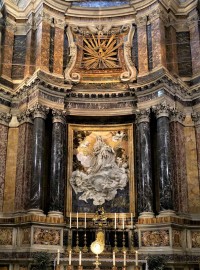
Church of Santa Caterina da Siena a Magnanapoli – a breath of Bernini’s art
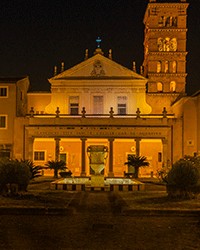
Church Santa Cecilia – early Middle Ages in a Baroque and rococo sauce
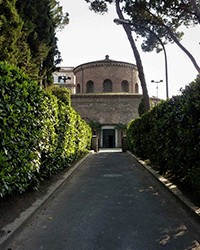
Church of Santa Constanza (the mausoleum of Constantina) – a little known pearl of early Christian art
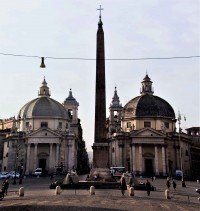
Church of Santa Maria dei Miracoli – a church welcoming and guarding pilgrims
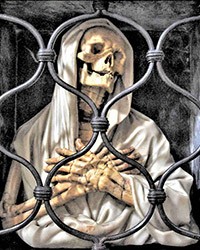
Church of Santa Maria del Popolo – a treasury of art and a mausoleum of family pride
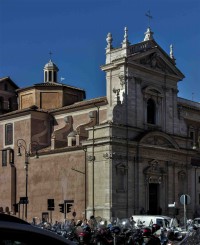
Church of Santa Maria della Vittoria – Baroque art on the move
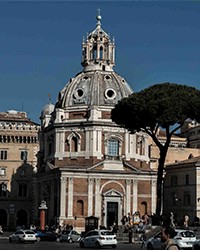
Church of Santa Maria di Loreto – paying a visit to the beautiful martyrs
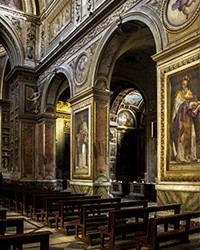
Church of Santa Maria in Aquiro – following the imitators and continuators of Caravaggio
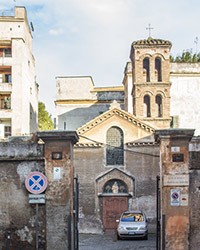
Church of Santa Maria in Cappella – the Middle Ages restored anew
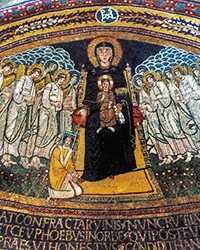
Church of Santa Maria in Domnica – a place, where the Virgin Mary is held by her foot
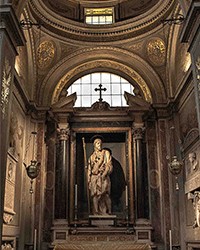
Church of Santa Maria in Monserrato – the final resting place of two popes of famous reputation
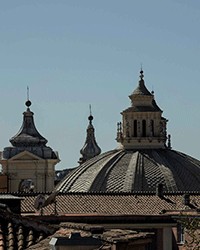
Church of Santa Maria in Montesanto – the guardian of a square, an elegant, harmonious and balanced church
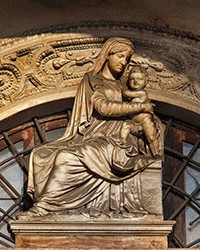
Church of Santa Maria Portea Paradisi – a place reminiscent of a gate to paradise

Church of Santa Prisca – a church with a pagan underground and a fascinating Christian patron
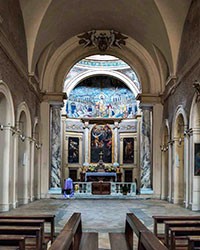
Church of Santa Pudenziana – an encounter with the art of late antiquity
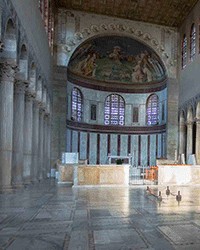
Church of Santa Sabina – beauty created out of stone, light and prayer
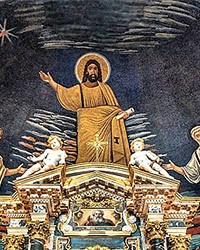
Church of Santi Cosma e Damiano – famous for its mosaics and saint doctors
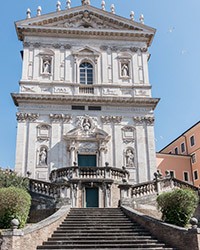
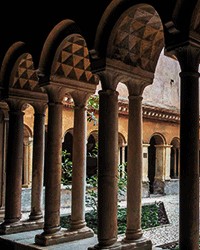
Church of Santi Quattro Coronati – where, a mystic aura of the Middle Ages prevails
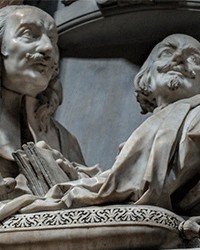
Church of Santissimi Nomi di Gesù e Maria – an emotional theatre of death in a church interior
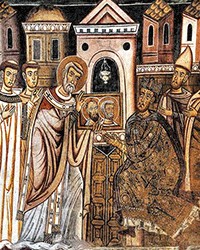
San Silvestro Oratory – a propaganda leaflet, or a treatise on political harmony?
Zgodnie z art. 13 ust. 1 i ust. 2 rozporządzenia Parlamentu Europejskiego i Rady (UE) 2016/679 z 27 kwietnia 2016 r. w sprawie ochrony osób fizycznych w związku z przetwarzaniem danych osobowych i w sprawie swobodnego przepływu takich danych oraz uchylenia dyrektywy 95/46/WE (RODO), informujemy, że Administratorem Pani/Pana danych osobowych jest firma: Econ-sk GmbH, Billbrookdeich 103, 22113 Hamburg, Niemcy
Przetwarzanie Pani/Pana danych osobowych będzie się odbywać na podstawie art. 6 RODO i w celu marketingowym Administrator powołuje się na prawnie uzasadniony interes, którym jest zbieranie danych statystycznych i analizowanie ruchu na stronie internetowej. Podanie danych osobowych na stronie internetowej http://roma-nonpertutti.com/ jest dobrowolne.